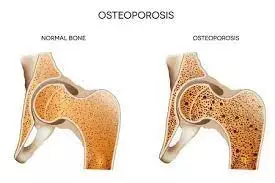- Home
- Medical news & Guidelines
- Anesthesiology
- Cardiology and CTVS
- Critical Care
- Dentistry
- Dermatology
- Diabetes and Endocrinology
- ENT
- Gastroenterology
- Medicine
- Nephrology
- Neurology
- Obstretics-Gynaecology
- Oncology
- Ophthalmology
- Orthopaedics
- Pediatrics-Neonatology
- Psychiatry
- Pulmonology
- Radiology
- Surgery
- Urology
- Laboratory Medicine
- Diet
- Nursing
- Paramedical
- Physiotherapy
- Health news
- Fact Check
- Bone Health Fact Check
- Brain Health Fact Check
- Cancer Related Fact Check
- Child Care Fact Check
- Dental and oral health fact check
- Diabetes and metabolic health fact check
- Diet and Nutrition Fact Check
- Eye and ENT Care Fact Check
- Fitness fact check
- Gut health fact check
- Heart health fact check
- Kidney health fact check
- Medical education fact check
- Men's health fact check
- Respiratory fact check
- Skin and hair care fact check
- Vaccine and Immunization fact check
- Women's health fact check
- AYUSH
- State News
- Andaman and Nicobar Islands
- Andhra Pradesh
- Arunachal Pradesh
- Assam
- Bihar
- Chandigarh
- Chattisgarh
- Dadra and Nagar Haveli
- Daman and Diu
- Delhi
- Goa
- Gujarat
- Haryana
- Himachal Pradesh
- Jammu & Kashmir
- Jharkhand
- Karnataka
- Kerala
- Ladakh
- Lakshadweep
- Madhya Pradesh
- Maharashtra
- Manipur
- Meghalaya
- Mizoram
- Nagaland
- Odisha
- Puducherry
- Punjab
- Rajasthan
- Sikkim
- Tamil Nadu
- Telangana
- Tripura
- Uttar Pradesh
- Uttrakhand
- West Bengal
- Medical Education
- Industry
DPP-4 inhibitors may Reduce Osteoporosis Risk among Diabetes patients

DPP-4 inhibitors may Significantly improve BMD and Reduce Osteoporosis Risk in Diabetes patients suggests a new study published in the Journal of Clinical Densitometry
Type 2 Diabetes Mellitus (T2DM) frequently coexists with osteoporosis and reduced bone mineral density (BMD). Dipeptidyl peptidase-4 inhibitors (DPP-4i), a class of antihyperglycemic agents, are commonly employed in T2DM treatment. However, the influence of DPP-4i on bone health remains unclear and debated. This meta-analysis is conducted to explore the relationship between the use of DPP-4i and changes in BMD, as well as the prevalence of osteoporosis among T2DM patients.
They conducted a comprehensive search in PubMed, Embase, and Cochrane Library and Web of Science databases for relevant studies published up until June 2023. Studies included in the meta-analysis were those investigating T2DM patients under DPP-4i treatment, and examining the effects on BMD and osteoporosis. Random-effects models and fixed-effect models were utilized to compute the pooled effects. Heterogeneity among the included studies was evaluated using I² statistics.
Results This meta-analysis incorporated a total of 10 studies, encompassing a combined population of 214,541 individuals. The results from this meta-analysis indicated an increase in BMD following DPP-4i usage (SMD 0.15, 95 % confidence interval 0.03-0.26). Additionally, the risk of osteoporosis was significantly reduced (OR 0.90, 95 % confidence interval 0.86-0.94) with very low heterogeneity, recorded at 0 % and 53.0 % respectively. No publication bias was detected in the funnel plot, and sensitivity analyses affirmed the stability of the study's conclusions.
The results offer valuable insights into the positive impact of DPP-4i on bone health in T2DM patients, contributing to informed clinical decision-making. These findings may inform the development of more comprehensive T2DM management strategies that account for bone health.
Reference:
Huang L, Zhong W, Liang X, Wang H, Fu SE, Luo Z. Meta-Analysis on the Association Between DPP-4 Inhibitors and Bone Mineral Density and Osteoporosis. J Clin Densitom. Published online November 28, 2023. doi:10.1016/j.jocd.2023.101455
Dr. Shravani Dali has completed her BDS from Pravara institute of medical sciences, loni. Following which she extensively worked in the healthcare sector for 2+ years. She has been actively involved in writing blogs in field of health and wellness. Currently she is pursuing her Masters of public health-health administration from Tata institute of social sciences. She can be contacted at editorial@medicaldialogues.in.
Dr Kamal Kant Kohli-MBBS, DTCD- a chest specialist with more than 30 years of practice and a flair for writing clinical articles, Dr Kamal Kant Kohli joined Medical Dialogues as a Chief Editor of Medical News. Besides writing articles, as an editor, he proofreads and verifies all the medical content published on Medical Dialogues including those coming from journals, studies,medical conferences,guidelines etc. Email: drkohli@medicaldialogues.in. Contact no. 011-43720751


